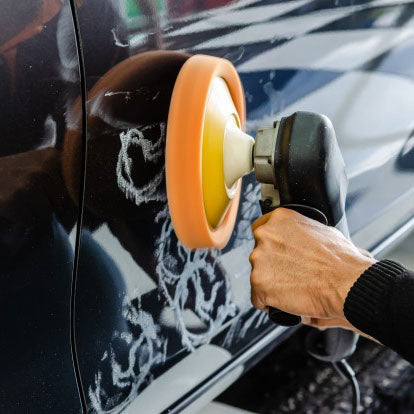Body piercing is more than a simple decoration—it's an expression of identity, culture, and individuality. As its popularity continues to grow, so too does the debate around the appropriate age for piercing. Should there be limits on when someone can get pierced? Should parental consent be required for minors, or should piercing studios have their own guidelines? Lets delve into the questions, analysing the legal, social, ethical, and health implications of age restrictions on body piercing.
The Cultural and Historical Context of Piercing and Age
Body piercing has been a part of human culture for thousands of years, often marking rites of passage, social status, or spiritual beliefs. In many indigenous cultures, piercings were performed on children or adolescents as part of ceremonial traditions, symbolizing maturity or readiness for adulthood. For example, the Maasai people in Africa are known for their earlobe stretching rituals, which begin during childhood. Similarly, in India, ear and nose piercings are common rites for young girls, marking a significant step toward womanhood.

Historically, piercing was a socially and culturally significant practice that often-involved young people. The question of whether there should be an age limit on piercings in contemporary society is, therefore, relatively new. As body piercing has shifted from traditional or ceremonial roles to a form of personal expression, modern regulatory and ethical questions have emerged, particularly concerning when and how young people should be allowed to modify their bodies.
Legal Framework: Piercing Laws by Age
Laws around body piercing vary significantly by country, state, and even by local jurisdictions. In many parts of the world, there are age restrictions designed to protect minors, with regulations often distinguishing between different types of piercings and requiring parental consent for younger individuals.
In Australia, the legal age for body piercing varies by state and type of piercing. Generally, minors (individuals under 18) need parental or guardian consent for most piercings, but there are additional regulations based on the specific type of piercing being considered.
- New South Wales (NSW)
In NSW, a person under the age of 16 requires written parental or guardian consent for any form of body piercing. For intimate areas, such as nipples or genital piercings, it is illegal to perform the piercing on anyone under the age of 16, regardless of parental consent. The law aims to safeguard minors from making decisions that could have long-term implications.
- Victoria
Victoria's laws are strict when it comes to body piercing for minors. Anyone under the age of 18 cannot receive an intimate body piercing, even with parental consent. However, for non-intimate piercings, parental consent is required for anyone under 16. The consent must be provided in person, with some piercing studios requiring a legal guardian to be present during the procedure.
- Queensland
Queensland adopts a similar stance, prohibiting intimate piercings for individuals under 18. For other types of piercings, minors aged 16 and above can make decisions independently, without parental consent. Those under 16, however, must have a parent or guardian provide consent, and written proof may be required by studios before the piercing can be performed.
- South Australia
In South Australia, the laws follow a tiered system. Minors under 16 need written parental consent for all types of body piercing, excluding ear piercings. For individuals aged 16 and 17, no consent is required unless the piercing is intimate. Intimate piercings are strictly prohibited for anyone under 18, even if parental consent is provided.
- Western Australia
In Western Australia, anyone under 18 needs parental consent for intimate piercings, which are generally restricted until the age of 18. For non-intimate piercings, such as ear or nose piercings, individuals under 16 need written consent from a parent or guardian, while those aged 16 to 18 can typically consent themselves for non-intimate piercings.
- Tasmania
Tasmania's laws are consistent with many other states, prohibiting intimate piercings for those under 18. For non-intimate piercings, minors aged 16 and above do not need parental consent, but those under 16 must have parental consent.
- Australian Capital Territory (ACT)
In the ACT, individuals under the age of 18 require parental consent for intimate piercings, which are otherwise prohibited for minors. Non-intimate piercings are allowed for minors, but those under 16 must have parental consent, and studios may require this in writing or in person.
- Northern Territory
The Northern Territory has similar laws to other states, with minors requiring parental consent for any form of piercing under the age of 16. For intimate piercings, the minimum age is 18, regardless of parental consent.

These laws are in place to protect minors from making decisions about their bodies that they may regret later in life. Piercing studios are held to high standards of hygiene and professional conduct, and failure to comply with the age-related laws can result in fines, loss of licenses, and legal action. As piercing is a permanent form of body modification, these regulations ensure that young individuals are given time to make informed decisions under the guidance of responsible adults.
These laws aim to strike a balance between allowing personal expression and protecting minors from making decisions they might later regret, particularly those with long-lasting effects. However, the inconsistency in regulations also raises questions about the appropriate age for such decisions and whether universal standards should exist.
Health Considerations for Piercing Young People
One of the primary concerns surrounding age and piercing is the potential health risks involved. Body piercing, when done improperly or without adequate aftercare, can lead to infections, allergic reactions, scarring, and even more serious complications like keloids or bloodborne diseases. For younger individuals, these risks can be exacerbated by the fact that their bodies are still developing, and their immune systems may not be as robust as those of adults.
Healing and Growth Considerations:
- Younger people, particularly children and teenagers, are still growing. This means that piercings done at an early age might shift or become misaligned as the body changes, particularly in areas like the ears or nose.
- Cartilage piercings (such as those in the nose, ear, or other areas) are more prone to complications in younger individuals due to slower healing and increased sensitivity.
- Children and teenagers might not have the maturity or responsibility to properly care for a piercing during the healing period, which could result in infections or rejection.
Allergic Reactions and Material Sensitivity:
- Younger individuals may also be more prone to allergic reactions, especially if non-hypoallergenic jewellery is used. Nickel allergies are common, and if proper materials like surgical steel or titanium are not used, complications can arise.
While responsible piercing studios take these risks seriously, offering age-appropriate advice and health guidance, the question remains whether young people are fully equipped to manage the demands of healing and long-term care for their piercings.

Ethical Considerations: Consent and Autonomy
At the heart of the debate over age and piercing is the issue of consent and bodily autonomy. Adolescence is a time when individuals begin to explore their identities and express themselves in new ways, and body modifications like piercing can be a powerful form of self-expression. However, the ethical question is whether minors are capable of giving informed consent to body modifications, particularly those that may have lasting effects.
Parental Consent:
- In many countries, parental consent is required for minors to receive body piercings, particularly those beyond the earlobes. The rationale behind this requirement is that minors may not fully understand the long-term consequences of body modification, and parents or guardians are in a better position to weigh the risks and benefits.
- Critics of this approach argue that requiring parental consent undermines young people’s autonomy and their ability to make decisions about their own bodies. For many teenagers, getting a piercing can be a significant aspect of asserting their independence, and parental involvement may complicate that process.
Informed Consent:
- Another ethical issue is the question of whether minors can provide fully informed consent. To give informed consent, an individual must understand the risks, benefits, and potential consequences of a procedure. Younger individuals may struggle to fully grasp these concepts, particularly in the case of more invasive or permanent piercings.
- Some piercing professionals argue that it is their responsibility to ensure that minors understand the potential risks and aftercare requirements before proceeding. In this sense, the studio acts as a gatekeeper, helping to ensure that young people are making informed decisions about their piercings.
The issue of consent becomes even more complex when considering cultural factors. In some cultures, body piercing at a young age is a norm, while in others, it is frowned upon. These cultural differences add another layer of complexity to the ethical debate, as parents' values may conflict with their children's desires for body modification.

Psychological Impact of Piercing at a Young Age
For many adolescents, body piercing can serve as a form of self-expression and a way to assert control over their changing bodies. The act of piercing can provide a sense of empowerment, allowing young people to experiment with their appearance and explore their identity. In this sense, body piercings can have positive psychological effects, boosting self-esteem and providing a means of personal expression.
However, there are also concerns about the potential for regret, especially if piercings are done impulsively at a young age. Teenagers, in particular, are prone to making decisions based on peer pressure or fleeting trends, and body modifications like piercings can have lasting consequences. The possibility of regret is heightened when piercings are performed without careful consideration of the long-term implications.
Body Image and Social Pressure:
- The pressure to conform to certain beauty standards can also play a significant role in young people’s decisions to get piercings. In some cases, the desire for a piercing may be driven more by societal or peer expectations than by a genuine desire for self-expression. This raises questions about whether young people are truly making autonomous decisions or whether they are being influenced by external pressures.
Long-term Satisfaction:
- Research on body modifications suggests that individuals who receive piercings as part of a considered and intentional process are more likely to feel satisfied with their decision in the long term. On the other hand, those who get piercings on impulse or due to external pressure may be more likely to regret their decision later in life.

Understanding the psychological motivations behind piercing can help inform guidelines for age limits and consent, ensuring that young people are making decisions that align with their personal values rather than succumbing to social pressure.
What do you think? Should there be limits?
The question of whether there should be age limits for body piercings is a complex one, touching on issues of legal responsibility, health, ethics, and psychology. While laws requiring parental consent for minors provide a layer of protection, they also raise questions about autonomy and the role of parents in body modification decisions. Health risks and the potential for regret are important factors to consider, but so too are the positive psychological effects of self-expression and identity exploration.
In the end, the answer to whether there should be limits depends largely on the type of piercing, the individual’s maturity level, and the guidance provided by both parents and professional piercers. While age restrictions may be necessary for more invasive or permanent piercings, less permanent forms of body modification, like earlobe piercings, may not require such strict oversight. What is clear is that informed consent and education should be central to the piercing process, ensuring that young people are making empowered, responsible decisions about their bodies.



